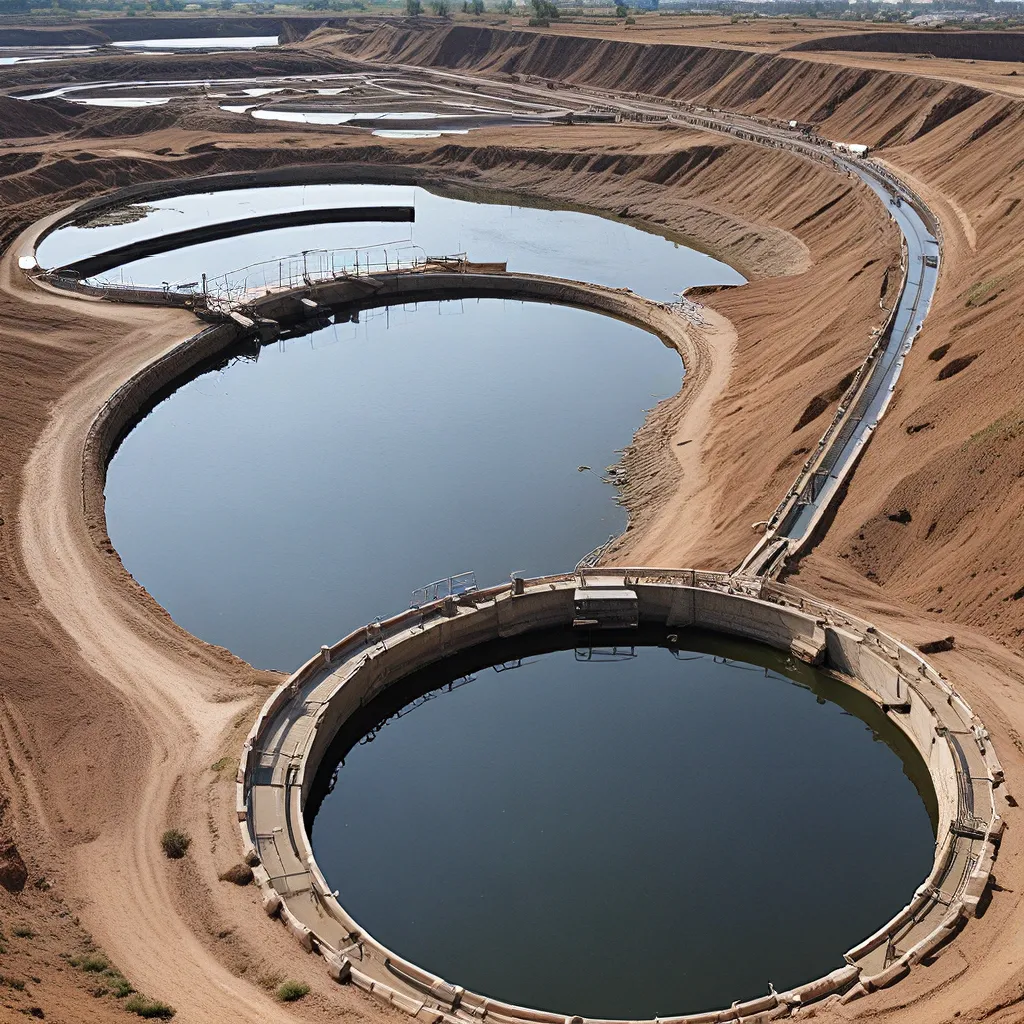
As someone who’s passionate about sustainability and environmental stewardship, I’ve been fascinated by the concept of the circular water economy and how it’s transforming the way we approach wastewater treatment. Gone are the days when wastewater was simply a costly burden – today, it’s being recognized as a valuable resource that can be harnessed to create a more sustainable and resilient future.
Embracing Renewable Energy in Wastewater Treatment
One of the most exciting developments in this space is the growing use of renewable energy in wastewater treatment facilities. Instead of relying on traditional grid-supplied power, which often comes from fossil fuel sources, these facilities are increasingly turning to biogas and solar power to meet their energy needs.
Biogas, produced through the anaerobic digestion of organic matter in wastewater, can be used to generate electricity, heat, or even fuel. This not only provides a sustainable source of energy, but also helps to close the loop by converting waste into a valuable resource. It’s like turning trash into treasure!
And the innovation doesn’t stop there. Some wastewater treatment plants, like the Blue Plains Advanced Wastewater Treatment Plant in Washington, D.C., have even gone a step further by installing solar panels across their facilities. This combined approach of wastewater treatment and renewable energy generation is a true game-changer, reducing the overall environmental impact and promoting resource efficiency.
Recovering Valuable Resources from Wastewater
But the circular water economy doesn’t just stop at renewable energy – it also extends to the recovery of valuable resources from wastewater. Think about it: our wastewater is essentially a treasure trove of materials like phosphorus, nitrogen, and even metals. By capturing and repurposing these resources, we can not only reduce waste, but also create a sustainable supply of materials that can be reused and recycled in the circular economy.
Take phosphorus, for example. It’s an essential nutrient for agriculture, but its global reserves are finite. By recovering phosphorus from wastewater, we can reduce our reliance on mined phosphorus and create a renewable source of this vital resource. Just imagine the impact this could have on food security and sustainable agriculture!
And it’s not just phosphorus – nitrogen and metals can also be recovered from wastewater, providing a new source of materials for a wide range of industries. It’s like turning your trash into someone else’s treasure, all while promoting environmental sustainability.
The Challenges and Opportunities of the Circular Water Economy
Of course, transitioning to a circular water economy isn’t without its challenges. Implementing the necessary technologies and infrastructure can be costly and complex, and there may be regulatory hurdles to overcome. But the potential benefits are simply too great to ignore.
As Stockholm’s wastewater has shown, by turning their wastewater into a valuable resource, they’ve not only reduced their environmental impact, but also created a new revenue stream. And in Scotland, Scottish Water is recovering grit from wastewater for use in the construction industry, another example of how the circular water economy can create innovative solutions to age-old problems.
The truth is, the circular water economy is still very much a work in progress, with researchers and innovators around the world exploring new and exciting ways to close the loop on water resources management. But one thing is clear: the future of wastewater treatment is no longer just about managing waste – it’s about harnessing the power of the circular economy to create a more sustainable and resilient future.
So, what does this mean for you, the reader? Well, it’s an opportunity to get involved, to explore the possibilities, and to be a part of this transformative movement. Whether you’re a water utility, a policymaker, or just a concerned citizen, there’s a place for you in the circular water economy.
Alpha Wastewater is at the forefront of this exciting transition, using innovative technologies and practices to recover resources and generate renewable energy from wastewater. By partnering with us, you can be a part of the circular water revolution and help shape a more sustainable future for our planet.
The journey towards a circular water economy may not be an easy one, but it’s one that’s worth taking. So, let’s roll up our sleeves, get our hands dirty, and close the loop on water resources management. Who’s with me?